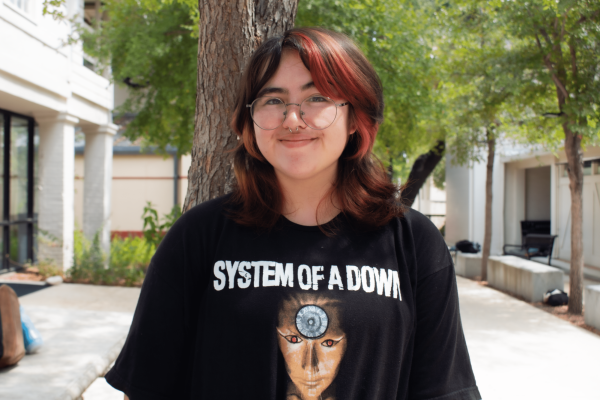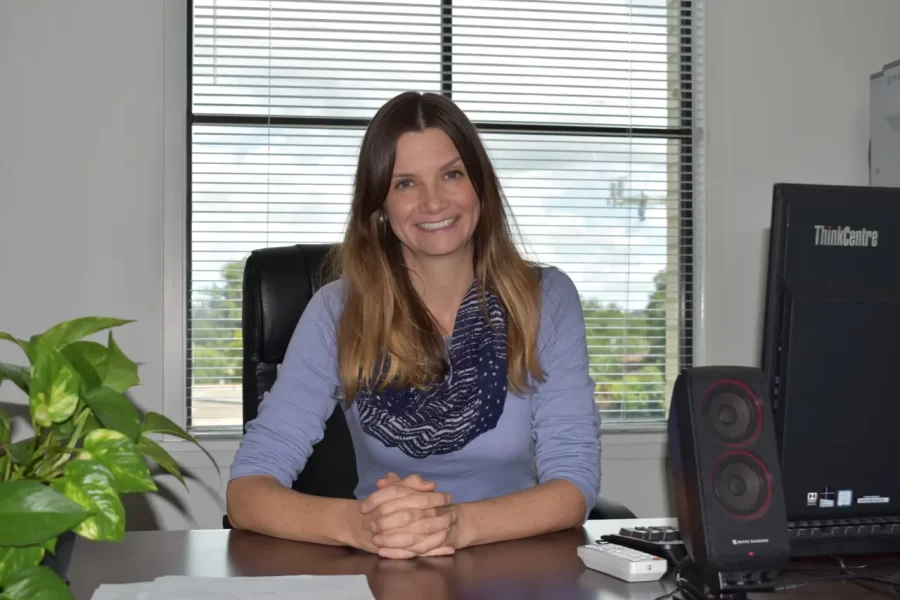What Makes Them Tick?: Dr. Armentrout
I’d like to preface this interview with a “thank you” paragraph of sorts for Dr. Armentrout. First, I will say thank you for allowing me to interview you, and I apologize for taking so long to write this article (two months overdue I fear). While the Class of 2024 didn’t get to experience the same classroom experience as other grades might (due to COVID-19 and hybrid classes), we do appreciate how patient you were during a difficult time. Asynchronous days were extremely helpful and we all loved your class when we finally got to go in person. We are sad to see you go, but wish you the best of luck and are sure you will have a bright future ahead of you!
Mostly Academic Based Questions
Q: How long have you been teaching at Keystone?
A: “This is my fourth year teaching at Keystone.”
Q: What is your favorite unit of history to teach?
A: “I really like the 20th century because there is so much happening. Students are often more interested ‘cause they can see the direct relationship to the world they are living in. I find all the social movements of the 1960s and ‘70s and onward to be very interesting, as well as the World Wars; even though they are tragedies they are fascinating.”
Q: What is your most controversial opinion?
A: “Hmm…my most controversial opinion…probably that people are mostly good and smart. I think there’s major flaws, but I do think they are pretty good and pretty smart.”
Q: Do you think history will continue to repeat itself or do you have faith that humanity will start to learn from our mistakes and make sure certain tragedies and prejudice won’t happen again?
A: “We will probably get better at certain things. I think we’ve seen changes in terms of—say —the movement for recognizing and defining human rights, and I think those sorts of things have a long lasting impact that allow us to analyze problems more effectively and not repeat things at least in the same way as we used to. I do think there are certain areas in which we see progress at the same time; when I read sources from a long time ago I don’t see this vast difference in humans of the past and humans of the present, so I think it’s hard to say humans are necessarily much smarter or better as people or totally different from other eras—so I don’t expect humans to stop having conflict. I’m hoping though,we get better structures with those things and can avoid certain kinds of conflict”
Q: What are you going to miss about Keystone?
A: “Oh my gosh… so many things… starting with the campus—it’s not trying too hard to be fancy—well, I am in the nicest building right now so it’s easy for me to say, but I like how it’s some historical buildings on this block and we’re not like a country club out in nowhere—we’re a part of this particular part of the city of San Antonio. Primarily, I’ll miss the people. The students here are so smart and accepting of each other’s idiosyncrasies and I’ve always loved that about Keystone—I think that creates an environment of creativity and an environment to take risks. I’ll also miss having students for more than one year and getting to know them a lot, like knowing the juniors as well as I do is a great feeling. I’ll also miss my colleagues here who are super fun and smart and creative.”
Personal Questions
Q: As an ethics teacher, I’m sure you’re involved with the social movements of today, so have you been to any protests or marches that you’d like to talk about?
A: “Yes, I have. I was partly attracted to going to UC Berkeley as an undergrad because of its history of culture and protest in the 1960s and that was really inspiring and a part of campus culture and it was not uncommon for there to be campus-wide protests all the time and, in fact, you kind of got used to it—I, of course, wasn’t there in the 1960s, but in the early 2000s. The ones I remember the most impactful for me in college were the fight for affirmative action in California, the fight to keep ethnic studies as a department at the University of California, and the war in Iraq bringing a lot of people out for the anti-war movement.”
Q: Any funny college stories you are willing to share?
A: “College for me was really different depending on the year. I went to a really big university. I left from Washington State to California, so I was getting used to the California culture. There were a lot of people who were interested in different things and it took a while to find my people. By Senior year I realized that the co-op system had a lot of the people I really liked so there was a vibrant living community in Berkeley where there were different houses that students ran and worked on (cooking, cleaning, etc.) I got to meet a lot of interesting people and we lived in what had been designed originally as a hotel in the Hills of Berkeley and there were about 100 of us… It was kind of dirty I will say, but we tried to keep it clean and it was a lot of fun. So if you ever get a chance to check out the co-ops at your college, go see if it’s for you! It’s not for everybody, but you’ll meet a lot of interesting people.”
The co-op system is a system of living provided by several universities. How the system works is a group of students is a part of a cooperative; in which they all actively participate in running the household. Armentrout states, “We’re very used to the nuclear family arrangement, but that’s what I find cool about history is that you can look about how different people lived and how it hasn’t always been so focused on a house with a nuclear family. What was cool about living with a bunch of people was that you got to do lots of things, so everyone had different jobs—like gardeners maintenance making yogurt—it opened up a different way of working together to accomplish what you want—I joined late so I was dutied with the pot wash shift, which was difficult but I was proud when I did it quickly and effectively.” So, as Armentrout suggests, if you want to try communal living you should, whether you end up liking it or not.
Q: What is your favorite song to play on the guitar?
A: “I really like this singer/songwriter Gillian Welch and so lately I like the song ‘Everything is Free,’ which is a very pretty song that I’ve been playing lately.”
Armentrout Fact (muscle emoji): She played in a little band apparently! I do not know the name sadly….
Q: What is your favorite song ever?
A: “I don’t know if I have a favorite song because I know this may have come from a junior—I will say ‘Apocalypse’ because it makes me think of them. There are so many amazing songs… I just started listening to this band called Wet Leg and they’re super fun. I’ve been playing their music over the last few days.”
SPEEDROUND TIME
Q: Favorite color?
A: “Red.”
Q: Favorite food?
A: “Macaroni and cheese.”
Q: Favorite TV Show/movie?
A: “Oh that’s so hard… I usually say Eternal Sunshine of the Spotless Mind for many years has been my favorite movie, and for TV show…I’m currently watching Euphoria season 2.”
Q: Favorite Hobby?
A: “Probably music with people.”
Q: Favorite Greco-Roman God and why?
A: “Oh no… you’re going to have to help me out cause I don’t really know my Greek and Roman gods… who’s a good sea god? I like the ocean—oh, of course, Poseidon!”
Editor Theory/Note: Dr. Armentrout, as some of you may know, is a cancer (astrology sign). This could be a reason she loves the water. Cancers are the first water sign in the zodiac and, like other signs, are connected to adaptability, which water is a representative of.
Q: Favorite Animal?
A: “I really like cats.”
Q: Favorite Plant?
A: “I like ponderosa pines.”
Q: Favorite Junior? [a question requested question by the juniors themselves]
A: “Ha! How could you choose? How could you possibly choose from that group of people?”

One of the Editor in Chiefs of the Keynote, Caden is a Senior who enjoys the arts, music, and pop-culture. They are one of the co-presidents for Quizbowl,...

